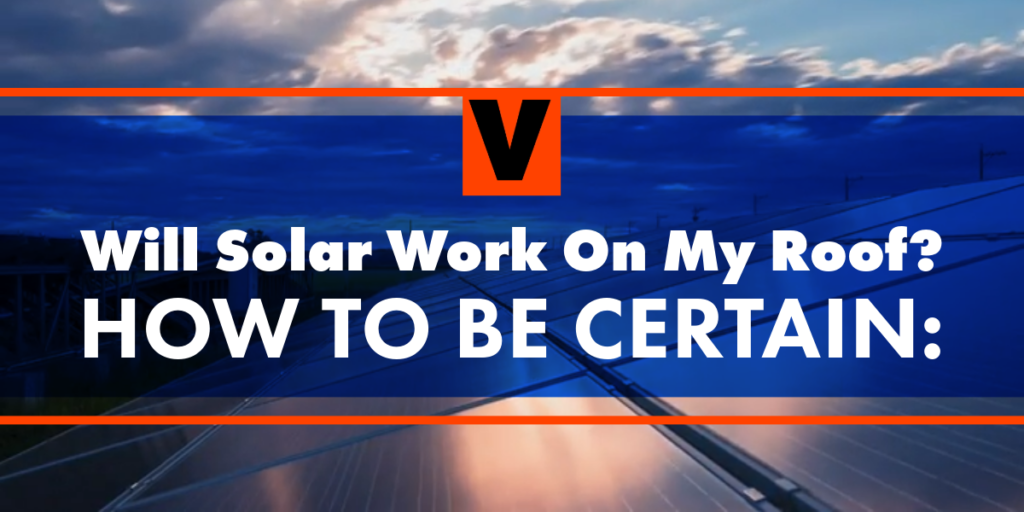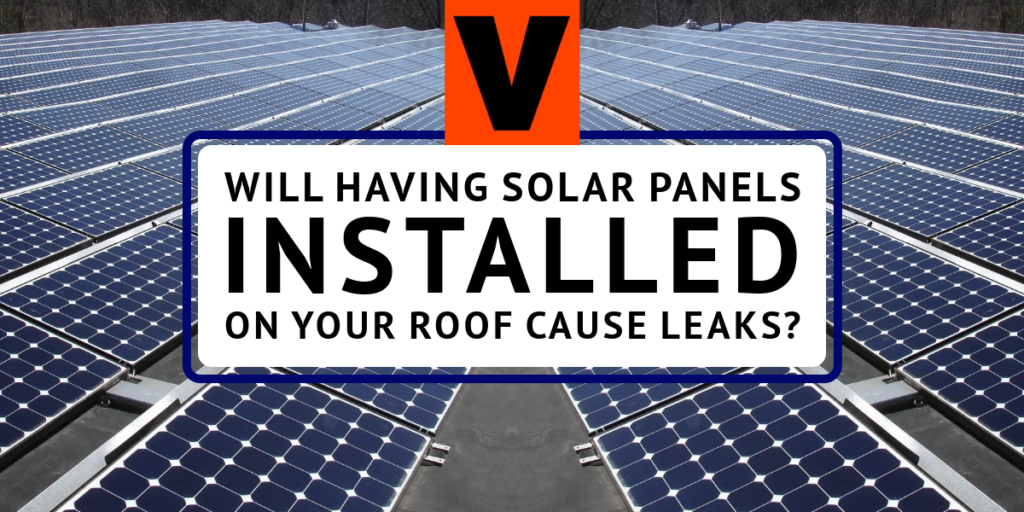Your commercial property is both a treasure and a nuisance, isn’t it? It protects your entire business. Yet it constantly requires diligent maintenance and no small outlay of capital. You have the brilliant idea to install solar panels and make the roof a greater asset. But now you ask yourself a new question: “Should I get a new low-slope roof installed before installing solar panels?”
Uncharted
If your low-slope roof is an unknown quantity to you or your facilities crew, you cannot reasonably move ahead with a solar energy system (SES). You need to know the condition of the foundation for the panels.
Solar panels are a superb way to reduce your company’s reliance on the power grid. They improve our environment, pay for themselves in as little as five years, and fit easily on most low-slope, commercial roofs.
Yet they must be fixed to a firm roof, one in excellent shape. Your company may be able to have panels installed on your existing roof, but you cannot know that if you do not know your roof:
- What was the quality of its installation?
- What is its repair history?
- What weather has it endured?
- How old is it?
- What is the typical lifespan of the roofing materials used on your roof?
If your existing roof is already in its twilight years, the decision should be to reroof or have a complete tear-off and roof replacement. That makes economic sense and eases scheduling worries.
Roof replacement may already be part of your roof succession plan, so installing the solar panels need not disrupt your schedule, budget, or operations. You may need to advance the reroofing or roof replacement project, but the process need not be a surprise.
Eye Spy
Your local, commercial roofer — the same roofer you have depended on for snow removal, routine repairs, and annual inspection — is best equipped to assess your existing roof. Your roofer can perform an asset inspection specifically for making the roof solar-ready.
Roof inspections are visual and tactile; your roofer will look, measure, complete pull tests, and make core cuts. Commercial roof inspections can serve many purposes:
- Warranty enforcement
- Leak detection
- Energy savings
- Solar panel installation
For solar panels, your commercial roofer will assess your roof deck to handle:
- Solar panels
- Potential snow loads
- Wind loads
- Ballast loads
If your existing deck is not adequate to handle an SES, your commercial roofer can reinforce the deck and make recommendations about the roof itself long before you introduce solar panels.
Match
The “secret” to a successful SES is to match its expected lifespan with the roof’s lifespan. You face prohibitive costs in removing solar panel attachment points, panels, and other connections just to get access to roof seams, drains, flashing, and mechanical fasteners.
Your roof could well be solar-ready now if you:
- Worked with your commercial roofer to keep the roof well maintained
- Had waterproof coatings applied
- Saw to prompt snow removal in winter
- Had your roofer inspect the roof at least annually
Your SES contractor should work closely with you and your roofer to determine a realistic project schedule. A roof that is ready to handle the increased static loads, bear the additional weight at attachment points, and handle penetrations and new fasteners can speed panel installation.
Conversely, any unpleasant surprises about your roof should be discovered by your roofer, not your SES contractor. Having the roof inspected weeks before the anticipated SES installation could save time and money by revealing minor flaws. A few quick, thorough repairs could keep the project on schedule and under budget.
Ruh-Roh
As a property owner or manager, you do not want to be faced with an accelerated SES installation schedule at exactly the time you realize your roof is not up to the load. If your roofer reveals substantial damage, a badly aged roof, or a roof simply near the end of its lifespan, you need to face the problem and act fast.
First, no commercial roof heals itself. The damage discovered by a roof inspection would have revealed itself through more extensive problems later on. Second, you have to get the roof replaced to begin reaping the benefits of an SES.
Ideally, your roofer provides an SES-specific inspection and report well ahead of the panel installation. If the roof is found to be inadequate, you can still get a reroof or complete roof replacement without it qualifying as an emergency roofing job. Your commercial roofer will work very hard to get the new roof completed ahead of the SES contractor’s work.
With the new, long-lasting roof in place, the SES installation can proceed and you can start saving money on power bills.
Vanguard Roofing provides expertise, dedicated roofing services, and emergency roof repair for commercial clients throughout the Tri-State regions. Contact us today to see how we can brighten your future with a solar-ready roof.



